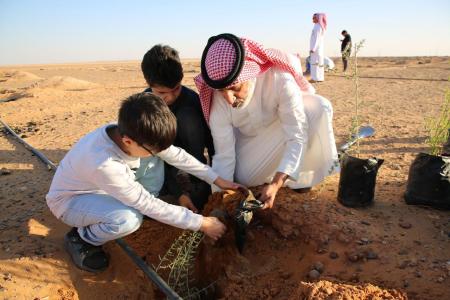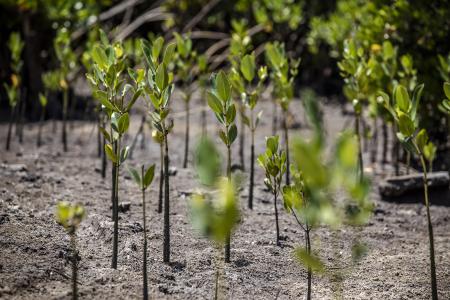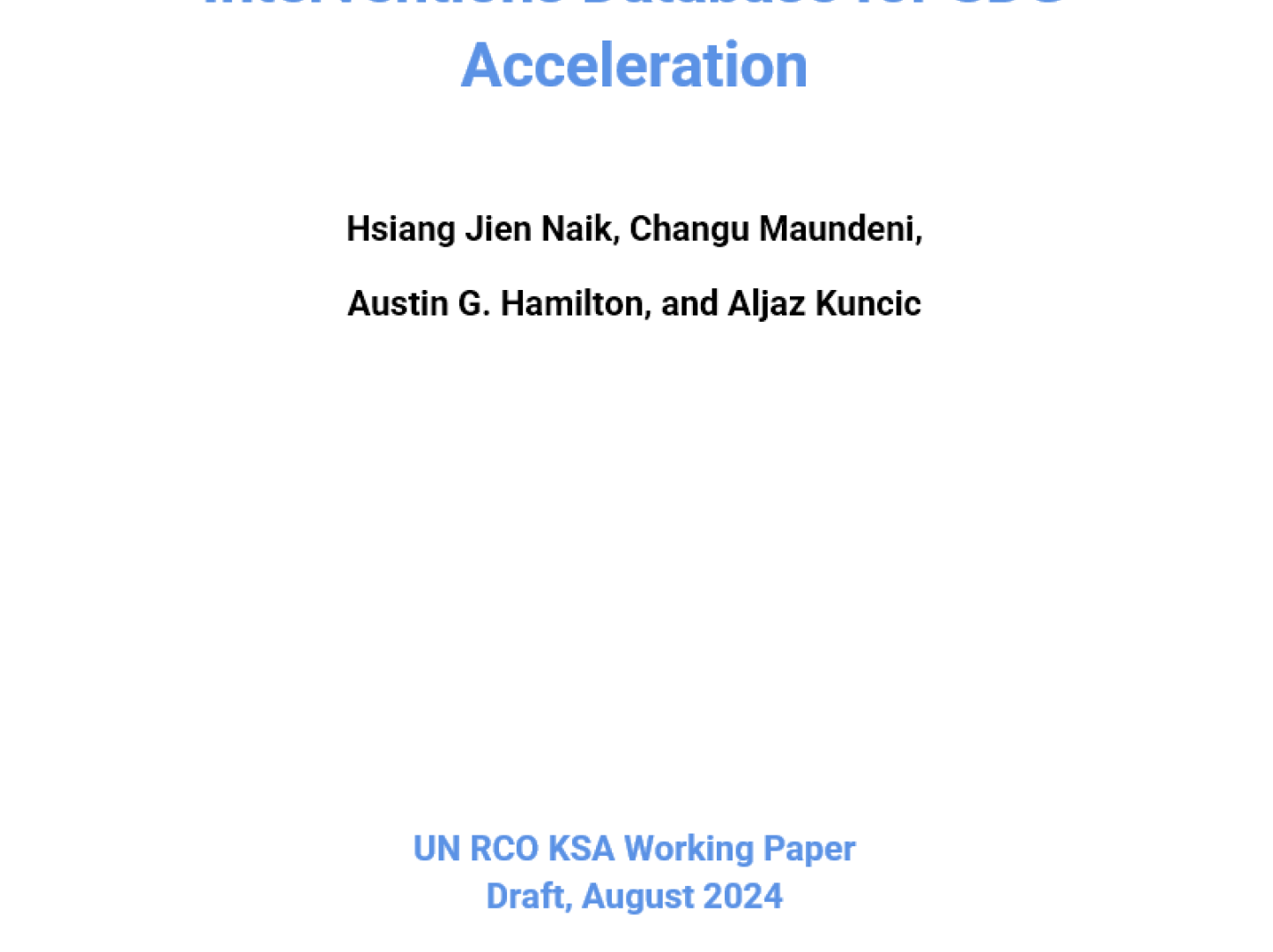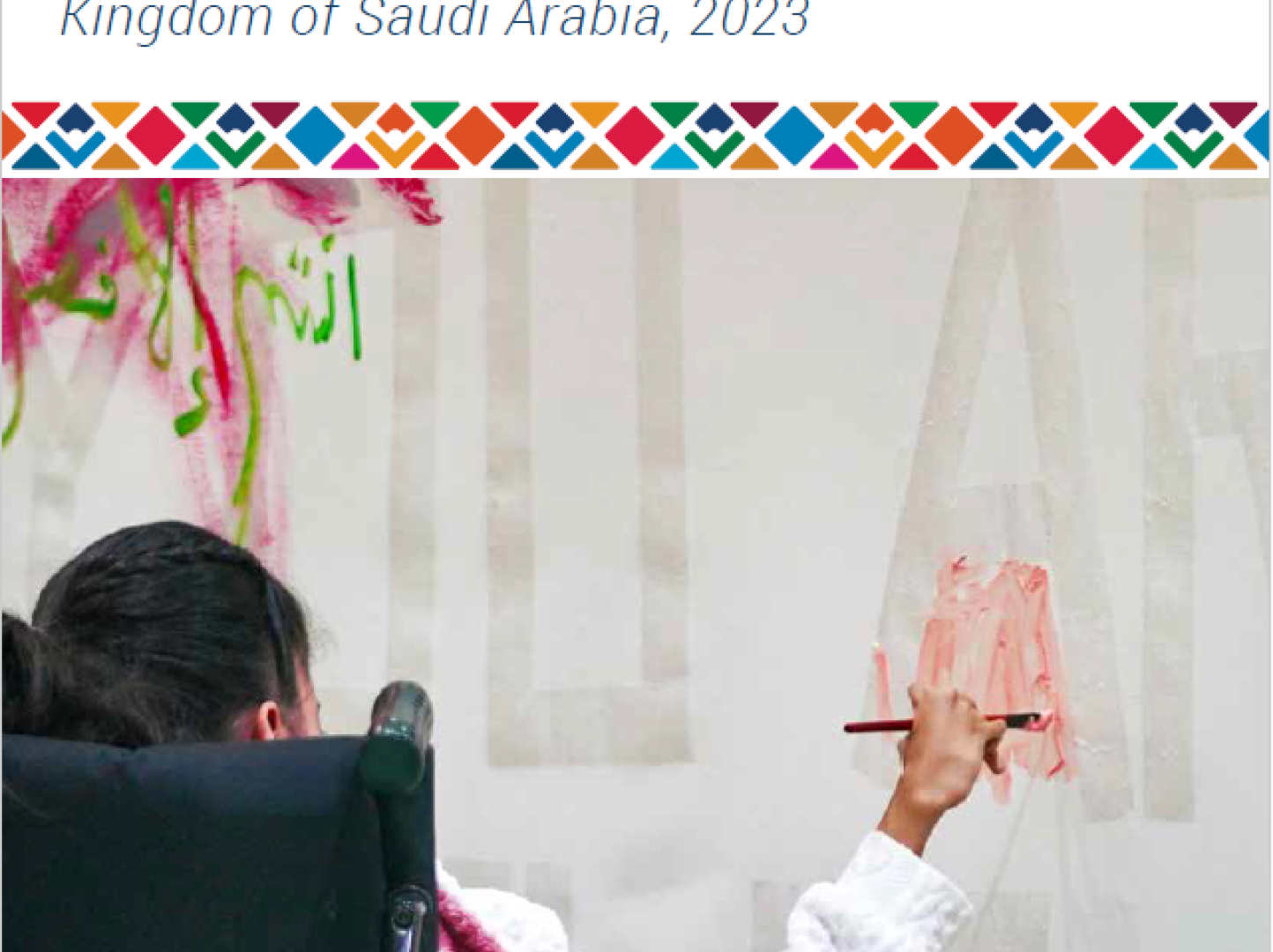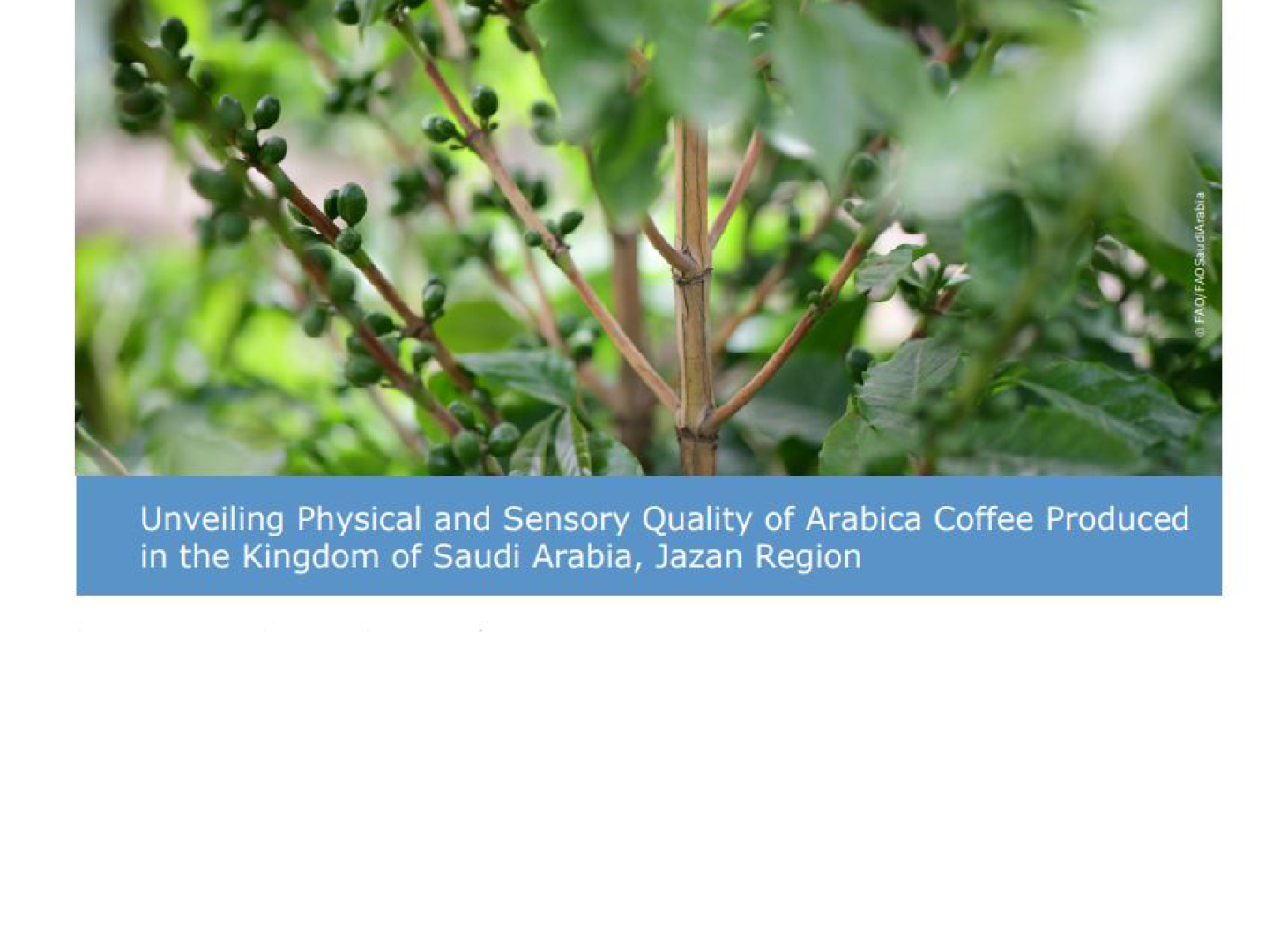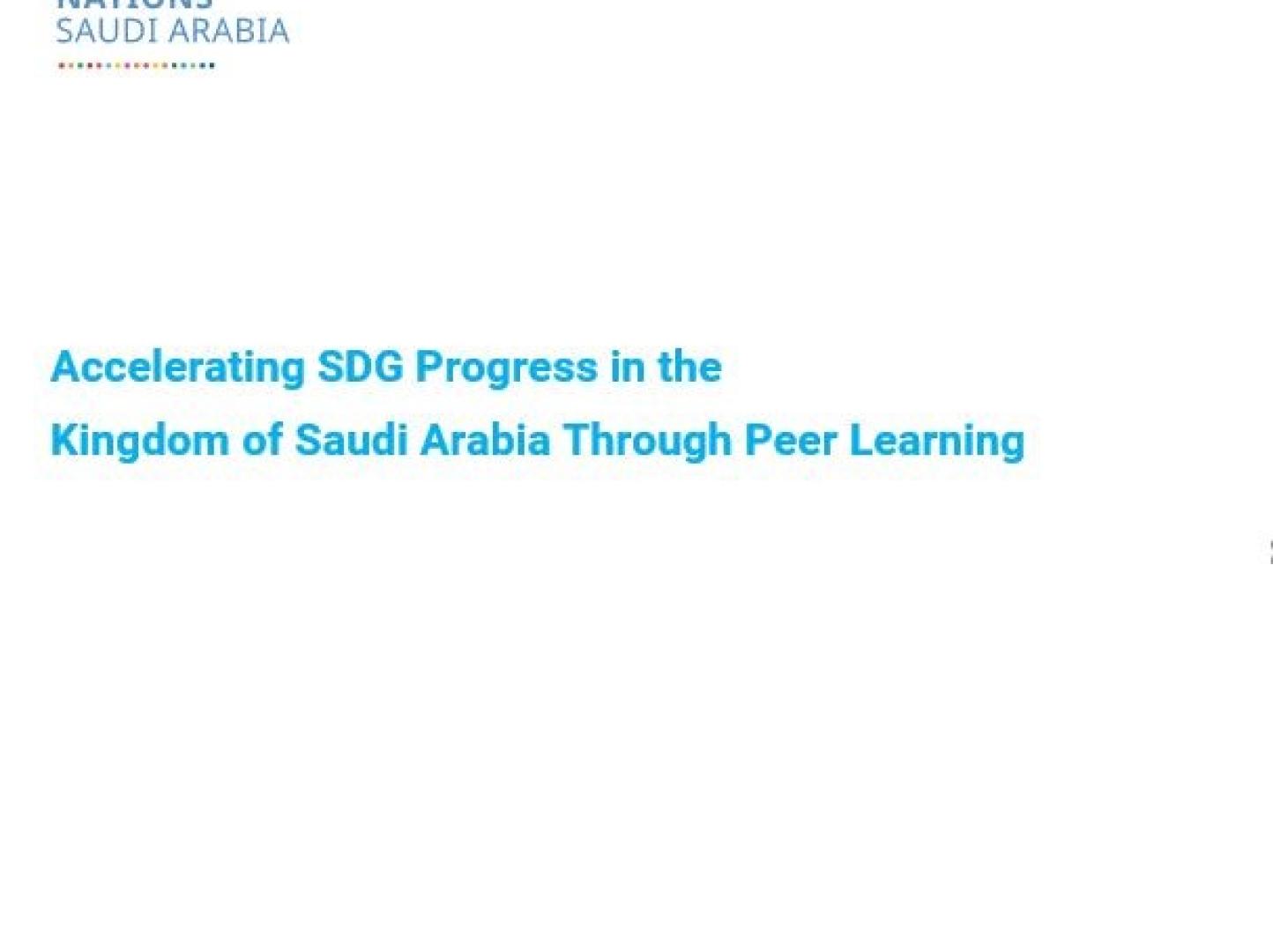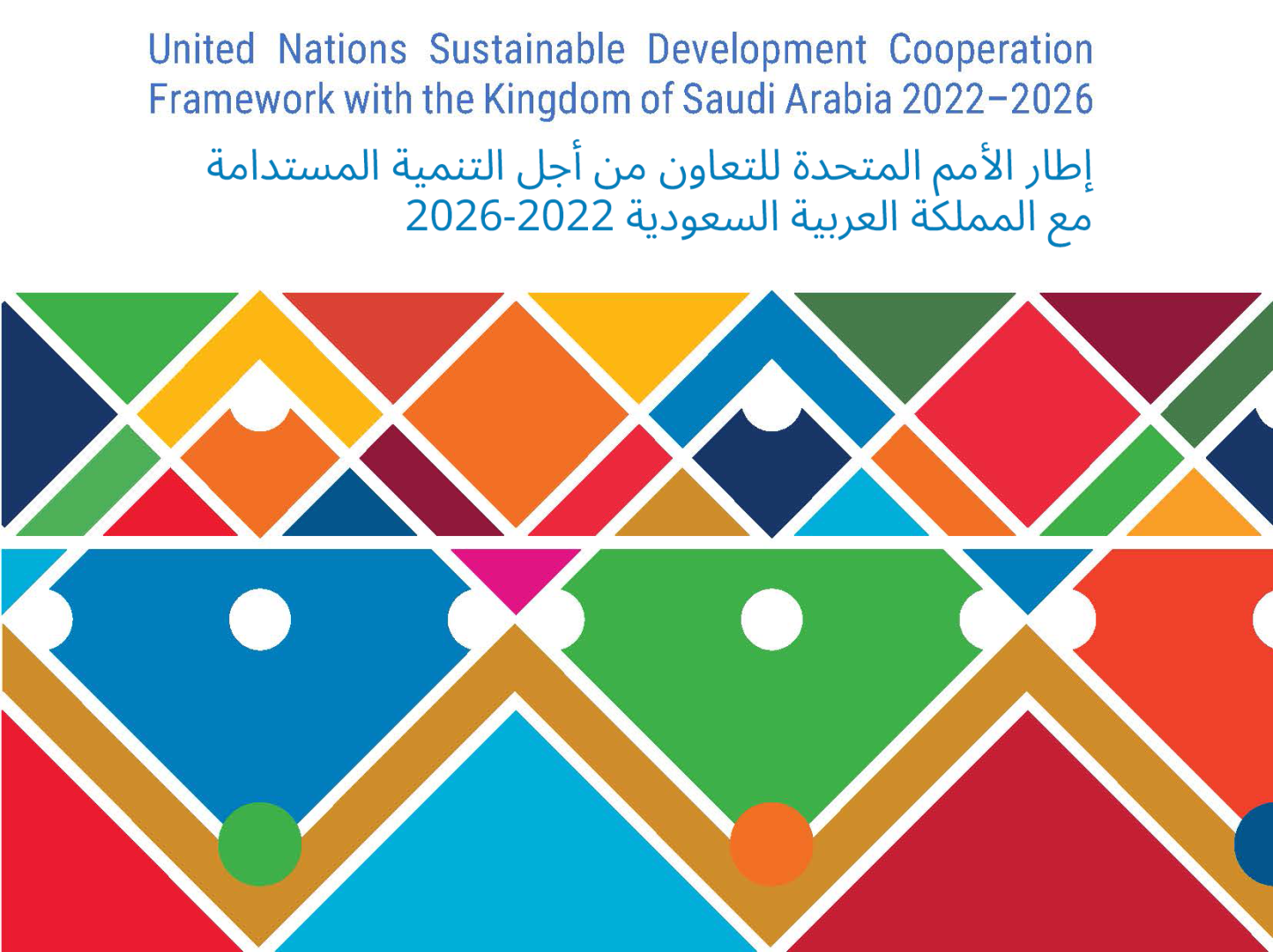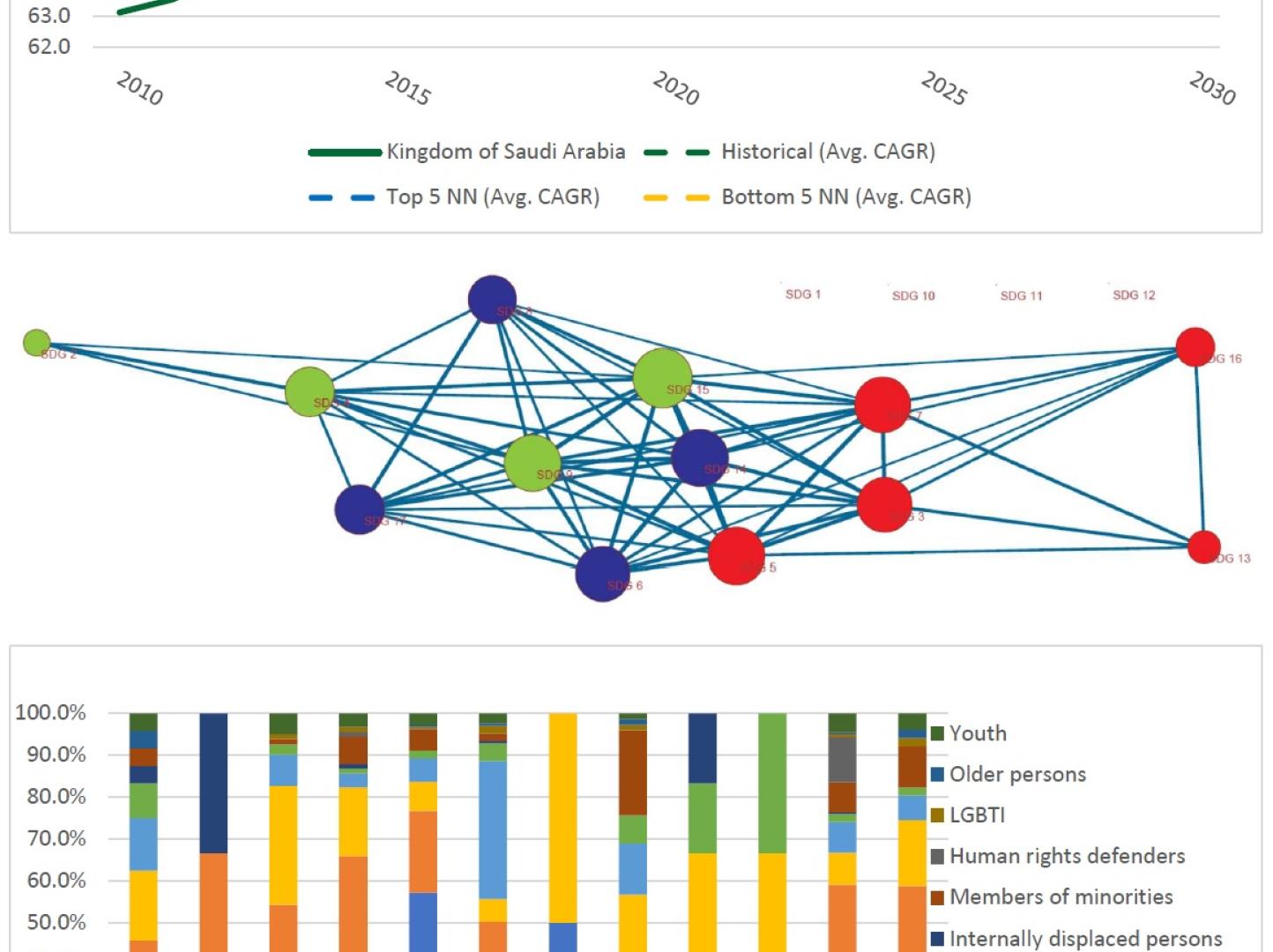Latest
Press Release
14 December 2025
UN Secretary-General's remarks at the 11th UN Alliance of Civilization Global Forum in Riyadh, Kingdom of Saudi Arabia
Learn more
Story
24 November 2024
Combating the Root Cause: Tackling Soil Salinity for Advancing Agriculture in Saudi Arabia
Learn more
Story
17 November 2024
Transforming Livestock Productivity and Empowering Rural Communities
Learn more
Latest
The Sustainable Development Goals in Saudi Arabia
The Sustainable Development Goals are a global call to action to end poverty, protect the earth’s environment and climate, and ensure that people everywhere can enjoy peace and prosperity. These are the goals the UN is working on in Saudi Arabia:
Story
24 November 2024
Combating the Root Cause: Tackling Soil Salinity for Advancing Agriculture in Saudi Arabia
The total area of the country is 215 million hectares, and less than one million hectares is currently under cultivation with several crops including date palm, cereals, forages, open field vegetables, and Mediterranean, subtropical, and tropical fruits. Most cultivated lands are calcareous with limited soil depth, moderate to high soil pH, low organic matter content, not well-developed soil structures with low nutrients content. Besides limited cultivated area, there are serious natural and human-caused limitations and challenges for agriculture. One of the most pronounced problems of desert cultivation in Saudi Arabia is soil salinity and its severe implications on agricultural productivity. Soil salinity is widely spread all over the country (more than 70 percent of the fields surveyed in south and north) and has a significant negative effect on crop yields of 17 percent to 38 percent.The ongoing Sustainable Rural Agriculture Development (SRAD) project implemented by the Ministry of Environment, Water and Agriculture (MEWA), Saudi REEF and Food and Agriculture Organization of the United Nations (FAO) is addressing the challenges of agricultural productivity and improving rural livelihoods while managing the vital natural resources. Management of soil salinity and its effect on crop production is an important area along with water management, soil nutrition and other inputs. The project is introducing good practices including micro irrigation to reduce overwatering and sensitizing on providing adequate drainage and judicious application of fertilizers to manage soil salinity issues. The farmers and extension agents are being empowered for tackling soil salinity including the causes of salinity, its harmful effects on soil and crop production and the solutions to overcome this problem such as the improvement of the drainage systems of irrigated agricultural land and the introduction of precise and accurate fertility programs. One of the problems noted in the course was the lack of adequate information on soil salinity management in desert agriculture. Local farmers and other stakeholders need the basic information on soil salinity, in Arabic, to be able to apply the good practices for sustainable agriculture production.The SRAD Rainfed Cereals team has developed an informative soil salinity manual in Arabic that deals with the important aspects of soil salinity including the causes, the harmful effects, and the practical solutions implementable at local level to tackle this problem is desert agriculture. This manual is intended for local stakeholders and will also be extremely useful for all Arabic speaking stakeholders. Dr. Abdulla Alhendi, Technical Expert, Rainfed Cereals component of SRAD emphasized that soil salinity issue in desert cultivation is very delicate and detrimental to crop productivity if not tackled and solved very professionally.Salinity is increasingly turning into a big abiotic challenges in Saudi Arabia that needs urgent attention. This publication provides pragmatic solutions that can have large implications for increasing productivity with resilience and management of land and vital natural resources in a sustainable manner.Read more here: https://doi.org/10.4060/cd3029ar to publication "Soil salinity: A guide on its harmful effects and prevention methods."
1 of 5
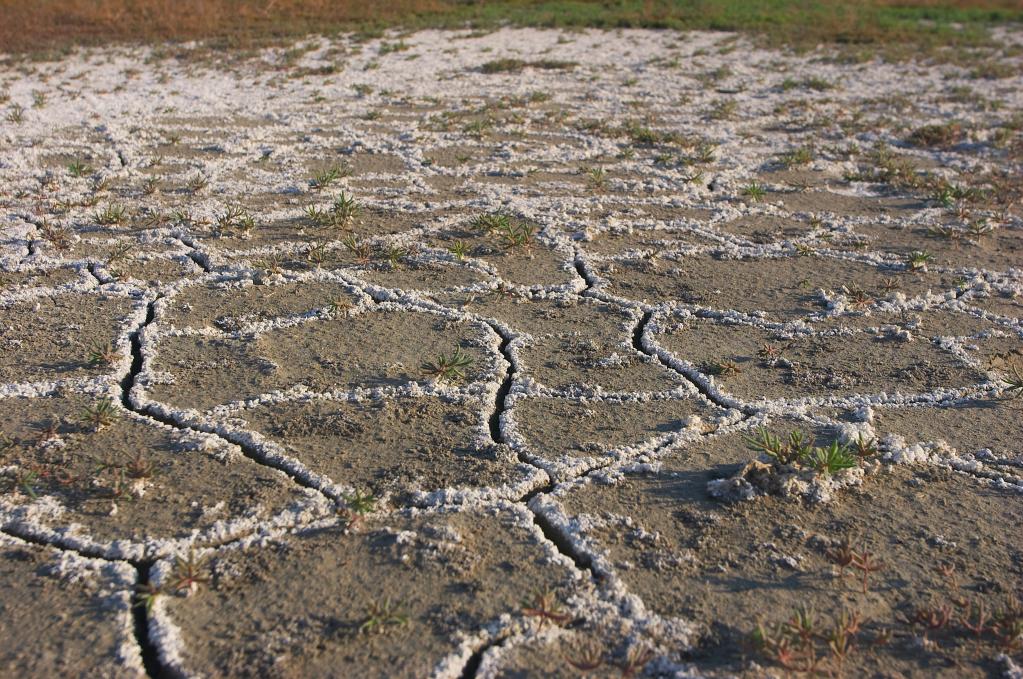
Story
17 November 2024
Transforming Livestock Productivity and Empowering Rural Communities
In rural Saudi Arabia, an innovative initiative is increasing livestock productivity and improving income generation for smallholder farmers and herders. A Farm Service Delivery Model (FSDM) is being launched in the Northern Border and Jazan regions in partnership with the Ministry of Environment, Water and Agriculture (MEWA) of Saudi Arabia, as part of the ongoing project on Sustainable Rural Agricultural Development (SRAD) project implemented by Food and Agriculture Organization of the United Nations in collaboration with Saudi Reef and MEWA. This initiative addresses key constraints faced by goat and sheep owners, such as poor productivity, high mortality, limited water resources and vegetation in challenging terrains.A Farmer-Centric ApproachRecognizing the challenges faced by small-holder farmers, the FSDM offers a suite of targeted services tailored to their specific needs. Trained local animal production technicians visit farms on a predetermined schedule to deliver essential and critical services and empower farmers with the tools and knowledge required for pest and disease management, animal nutrition, hygiene standards for milk products. Inputs such as vaccines, medicines, small farm equipment and disease diagnostics are provided by FAO and MEWA for these pilot programmes. Service delivery operations are monitored through a dashboard, allowing the field technician to analyze data, identify bottlenecks and introduce improvements.Services that Make a DifferenceThe success of the FSDM lies in its targeted, focused and impactful services:Animal identification and tracking: Farmers benefit from precise livestock tracking and management systems, enabling better oversight of their herds.Guidance on husbandry and feeding practices: By adopting best practices in animal nutrition and welfare, farmers have observed significant improvements in their livestock’s health and productivity.Breeding and reproduction management: Advanced techniques like ultrasonography have helped farmers optimize reproductive performance, ensuring healthier offspring and increased fertility rates.Preventive healthcare: Regular vaccination and deworming schedules have significantly reduced disease risks, contributing to healthier herds.Curative health care on call: Immediate responsive treatment for livestock health issues ensures timely intervention and minimizes losses.Housing and welfare advisory: Improved animal housing designs have led to better health conditions and overall productivity.Farmers who have adopted the FSDM have experienced notable outcomes, including:Increased Productivity: Lambing rates have increased from 0.7 to 0.9 lambs per ewe annually, transforming livestock yields and boosting income.Improved Livelihoods: Enhanced healthcare and preventive measures have reduced disease-related losses, allowing farmers to focus on growth and development.Empowered Communities: Equipped with better tools, knowledge, and resources, smallholder farmers are now key contributors to rural economic development.A vision for the future“The results are encouraging, but we must reach more farmers, as sheep and goat ownership is integral to the rural lifestyle across Saudi Arabia,” said Kakoli Ghosh, Chief Technical Advisor, Sustainable Rural Agricultural Development Project.The success of the FSDM in pilot regions presents a replicable model for expansion and uplifting rural communities. It may also create business opportunities for local youth as service providers. By focusing on sustainable practices and farmer empowerment, the FSDM is transforming livestock productivity and rural agrifood systems through a new roadmap for better production and better livelihoods.
1 of 5

Story
14 November 2024
Locally Led Adaptation for Resilient and Sustainable Agrifood Systems
In Saudi Arabia, crop production is confined to a limited area, primarily in the southwestern regions, mainly in Jazan and Asir, which receives relatively better rainfall (up to 450 mm at some areas) suitable for rainfed crops. Sorghum, pearl millet and sesame are the predominant crops in these regions, cultivated by smallholder farmers using traditional methods, occupying over 50 percent of the cultivated area. Production and productivity are constrained by factors related to lack of improved varieties and seed chains, insufficient context-specific management practices including pest and disease management and limitation in farmers` skills and capacities. These challenges impact smallholders’ income and rural livelihoods, highlighting the need for integrated policies, practices, technologies, and innovations to increase productivity while safeguarding livelihoods and the natural resources that sustain agrifood systems.The rainfed cereals component of the ongoing Sustainable Rural Agricultural Development (SRAD) project implemented by the Ministry of Environment, Water and Agriculture (MEWA), Saudi REEF and Food and Agriculture Organization of the United Nations (FAO), focuses on introducing improved genotypes of sorghum, pearl millet and sesame. Farmers in the region predominantly grow age-old cultivars, as there is no systematic crop improvement or seed production for these crops to provide quality seeds of improved varieties. This strategic partnership is strengthening farmers’ capacities through targeted collections of local germplasm, the development of community seed banks, the creation of digital catalogues on pest and disease management, and the improvement soil and water management to enhance sustainable rainfed cereal production.In a groundbreaking initiative, the SRAD project, in partnership with ICRISAT introduced 47 improved genotypes in 2023 comprising 24 sorghum, 12 pearl millet and 11 sesame genotypes for trials in Jazan and Asir regions. The project also trained staff at the newly established Rainfed Cereals Research Unit of the Agricultural Research Center (ARC) - Jazan, in scientific evaluation of improved varieties, pest and disease identification and management, and local germplasm collection. The team conducted trials and assessed the performance of the introduced improved genotypes vis-à-vis the best checks in three replicated trials with two planting dates both at ARC Jazan for coastal ecology and Seed Multiplication Station at Abha for mountainous ecology. Furthermore, some of the improved technologies were introduced in selected farmer demonstration fields.Promising genotypes of sorghum, pearl millet and sesame, adapted to rainfed cereal growing regions of Saudi Arabia, have been identified and are currently under validation. Among these, one of the improved biofortified sorghum lines ICSR 14001 (Parbhani Shakti), assessed in isolated fields under farmers’ management conditions at Jazan, has demonstrated extraordinary performance. Testing showed that Parbhani Shakti sorghum genotype has outyielded the best check in the farmers' fields. It has attracted the attention of many local farmers who are eager to grow it in their fields.Parbhani Shakti is a biofortified sorghum variety, rich in iron (Fe), zinc (Zn) and protein content, with high grain yield, larger grain size and increased biomass yield. This variety has the potential to enhance food and nutritional security in dryland areas while contributing to increasing fodder supply for livestock."The introduction of these improved crop varieties can usher in a new era for rainfed cereal production across the entire southwestern region of Saudi Arabia. Thanks to the local farmers, the MEWA leadership in Jazan and Abha and Saudi REEF team for their strong partnership,” said Kakoli Ghosh, Chief Technical Advisor, the SRAD project.What began as a small idea has blossomed into an innovative collaboration effort among MEWA, Saudi REEF, FAO and ICRISAT under SRAD project, directly benefiting local farmers. As a next step, efforts are underway to establish a ‘Community Seed Bank’ aimed at supplying quality seeds of improved varieties to farmers as well as identifying sorghum and pearl millet genotypes suitable for use as multicut forages. This initiative has significant potential to increase farmers’ yields while optimizing water use compared to other crops, thereby strengthening rural agrifood systems in the region.
1 of 5
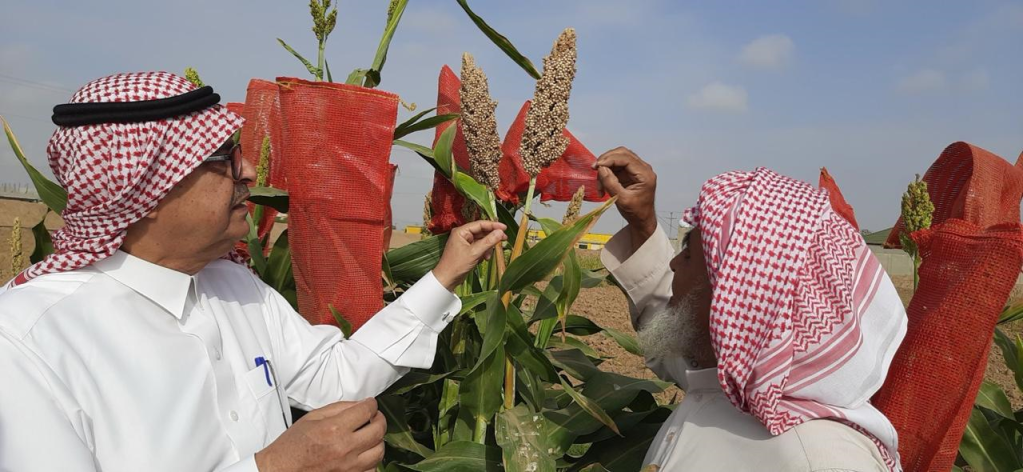
Story
26 July 2024
Saudi Arabia Empowering Communities and Ecosystems for Sustainable Mangrove Conservation and Management
The coastal mangroves of Saudi Arabia, home to two crucial tree species - Rhizophora mucronata or Avicennia marina, known as the richest and most diverse and productive ecosystem, providing essential provisioning, regulatory, cultural, and supporting services. Saudi Arabia mangroves is also an important carbon sink and carbon rich, play its role in climate change mitigation and vital for biodiversity and marine life. The mangroves serve as a sanctuary for a myriad of waterfowl, fish, including commercially valuable shrimps, and serve as the breeding and spawning grounds for many fish population.Threats to mangroves and coastal habitats in the regionPlaying a pivotal role in the food chain, food security, and the livelihoods of many fishermen and nomads, major part of mangroves in the region are facing multiple threats such as grazing by camels, timber cutting, pollution from solid wastes and sewage, as well as physical alterations to the coastal habitat. These threats, as highlighted in a 2004 report by PERSGA/GEF, span from local activities to global issues including uncontrolled coastal development, various forms of coastal and marine pollution, unsustainable utilization practices, shipping impacts, and disturbances linked to projected climate change.The report unveiled that the degradation of wetlands, mangroves, coral reefs, and seagrass beds has been linked to various factors, including excessive filling and dredging of coastal waters for industrial, residential, and road construction, accounting for 70 percent of the degradation. Additionally, uncontrolled browsing and grazing by camels contribute to 20 percent, while sand encroachment accounts for 5 percent. The remaining 5 percent is attributed to oil spills, pollution, and toxic sewage discharge. Awareness campaign on Mangrove Conservation Day"The imminent degradation and deforestation of our wetlands, mangroves, coral reefs, and seagrass beds demand immediate attention and action from the National Center for Vegetation Cover Development and Combating Desertification (NCVC) to combat threats posed by human activities," stated Ahmed AlMansi at the special pavilion located at the headquarters of the National Center for Vegetation Cover Development and Combating Desertification in Riyadh. The pavilion, dedicated to raising awareness about the significance of mangrove trees and their crucial role, in conjunction with the celebration of the International Day for the Conservation of the Mangrove Ecosystem and it was also featured in other locations such as Dammam (Eastern Province), Jazan, Aseer and Jeddah."NCVC has been actively planting mangroves since 2020, and it has been a significant success. To date, NCVC has planted more than 37 million saplings along the coasts of the Red Sea and the Arabian Gulf in collaboration with local stakeholder and partners such as Aramco, Ma’aden, Red Sea Global and the local community," said Ahmed proudly and added, “Our vision for 2030 is to plant 100 million mangrove trees, contributing to marine ecosystem health and blue carbon preservation.”Mangrove honey production and community benefits"Six tonnes of mangrove honey were produced in 2023. These mangrove tree plantings enable another income generation for communities along the coasts and improve the marine ecosystem accordingly," explained Abdullah. H. Alwabaid at awareness campaign to spread the significance of mangrove trees and their crucial role in sustaining ecological balance and biodiversity.FAO and NCVC collaboration for sustainable mangrove management"Through the integration of innovative technologies and capacity building initiatives for local communities and institutions, FAO aims to establish a comprehensive and sustainable management system in collaboration with NCVC," stated Raees Khan, Technical Adviser at the FAO Forestry unit for Natural Resource Management (NRM) in Saudi Arabia. "Our team will and jointly work with NCVC to develop context specific management plans, assessing the current state of forests, identifying causes of degradation, and proposing appropriate interventions and technologies of restoration, climate change mitigation, and promoting livelihoods, coastal resilience and biodiversity conservation." Raees emphasized that joint working will be based and capitalized on FAO's vast global experience and expertise in mangrove management and plantation establishment to further promote the conservation, development and protection of mangrove ecosystems for a greener future of Saudi Arabia.
1 of 5
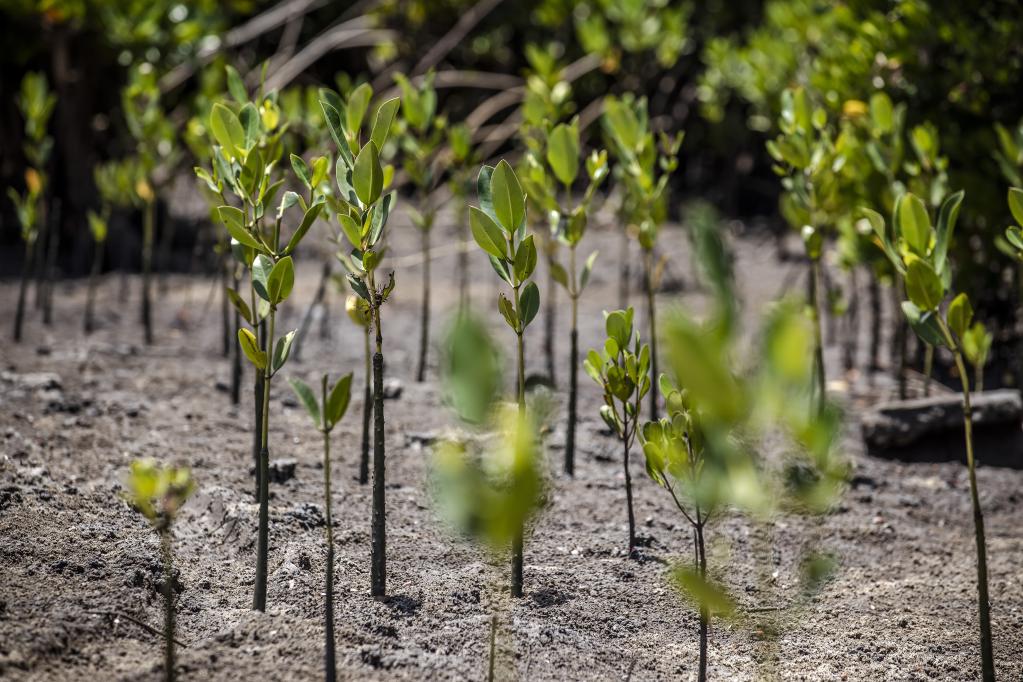
Story
18 July 2024
Strengthening Capacities for Developing the Sustainable Land Management Framework in the Kingdom of Saudi Arabia
The National Center for Vegetation Cover Development and Combating Desertification (NCVC) in collaboration with the Food and Agriculture Organization of the United Nations (FAO), and the World Overview of Conservation Approaches and Technologies (WOCAT), jointly organized a training workshop on 14 to 18 July 2024, for about 46 participants from 14 national stakeholders. These stakeholders include several departments of NCVC, Ministry of Environment, Water and Agriculture (MEWA) and relevant universities, focused on strengthening their capacity in developing a sustainable land management (SLM) framework in the Kingdom of Saudi Arabia.Training workshop strengthens NCVC, MEWA and universities’ capacity for developing SLM framework in Saudi Arabia“The cooperation between NCVC and FAO has been instrumental in enhancing joint efforts for sustainable natural resources development in Saudi Arabia,” said Mohamed Al Saeed, Director of the Department of Mitigation of Drought, speaking on behalf of the NCVC at the opening ceremony of the training workshop held at Crowne Plaza Hotel in Riyadh. Al Saeed emphasized the importance of collaborating with an elite group of experts, specialists and stakeholders to strengthen partnership and unify efforts in protecting the environment, improving vegetation cover and combating desertification. He noted that the stakeholders’ engagement reflects the extent of their commitment to environmental and sustainability issues and underscores the importance of cooperation between different parties to achieve Saudi Arabia’s environmental goals.“Environmental challenges in Saudi Arabia necessitate strong cooperation, solidarity and the adoption of best global practices in natural resources management,” added Al Saeed as he spoke about the series of fruitful meetings held to discuss compatibility and ways to enhance the joint efforts. Through this workshop, NCVC aims to strengthen its technical and administrative capabilities, and to exchange ideas and experiences with our international partners.Al Saeed extended his deepest appreciation to FAO and WOCAT for their continued support and cooperation and thanked the participants for their active engagement and great keen interest in environmental and sustainability issues. He concluded by expressing NCVC’s aspirations and anticipation of achieving positive and tangible results through this constructive cooperation. Saudi Arabia's commitment to sustainable rural agriculture“Efforts to combat climate change and enhance sustainable agriculture are crucial for securing food security and improving livelihoods in hyper-arid regions,” Kakoli Ghosh, speaking on behalf of FAO Saudi Arabia, and welcoming the WOCAT team and participants from different sectors. Ghosh commended Saudi decision-makers for their strong support for the development of scientific and sustainable solutions in reducing land degradation and mitigating sand encroachment to improve the rural economy. She emphasized FAO’s commitment to providing best practices to achieve food security through piloting innovative and suitable solutions in the agriculture sector. She stressed that these efforts should continue, focusing on value addition, conserving natural resources and improving livelihood and income.Collaboration between FAO with WOCAT“Our collaboration with WOCAT is pivotal in developing SLM framework, which will play a key role in addressing land degradation and desertification in Saudi Arabia while engaging a wide range of stakeholders to promote environmental sustainability,” said Jeremiah Njeru, Chief Technical Adviser of Natural Resources Management at FAO Saudi Arabia. He highlighted the collaboration between FAO and WOCAT through a Letter of Agreement, aims on strengthening the SLM in Saudi Arabia by developing an SLM Framework in partnership with the NCVC and MEWA. Njeru emphasized that an SLM framework will enable Saudi Arabia to effectively tackle land degradation and desertification, promote SLM technologies and practices across the Kingdom, and develop a platform for engaging all land sector stakeholders including government institutions, Non-Governmental Organizations (NGOs), and local communities.Njeru also emphasized the overarching goal of promoting innovative SLM technologies and practices to prevent degradation, enhance ecosystem resilience, and contribute to the long-term environmental sustainability goals of Saudi Arabia, including the Saudi Vision 2030 and other climate, biodiversity, and environmental initiatives such as Saudi Green Initiative. He welcomed the WOCAT team and highlighted the workshop as the initial step in documenting and implementing sustainable land management in Saudi Arabia.Saudi gains essential knowledge in SLM and readinessThree experts from WOCAT, namely Rima Mekdaschi, Jonas Chastonay and Joren Verbist, actively participated in the 5-day training workshop. They presented a common understanding of SLM, a brief introduction to WOCAT focusing on database and its use, SLM and the landscape approach, WOCAT documentation, criteria for assessing the sustainability and suitability of good land management practices, using WOCAT data within the context of the SLM framework for Saudi Arabia and initial ideas for a platform specific to Saudi Arabia. Additionally, four experts from FAO Saudi Arabia, namely Sami Albarih, Mona Dawelbait, Mosaed Majrashi and Yahya Alotaibi, contributed by presenting the status of land degradation in Saudi Arabia, identifying hotspots and focus areas as well as organizing a field day in Thadiq governorate to document three technologies and one approach.Extensive discussions were held with 46 participants, with strong participation of Saudi females throughout the workshop. The training workshop concluded successfully, featuring a range of topics, including individual tutorials and practical sessions for participants to reflect on and apply their newly acquired knowledge in suitability, sustainability and documentation of technologies and approaches in the WOCAT platform.On the final day, a planning presentation highlighting the next steps was delivered, with ongoing efforts planned to document SLM practices in Saudi Arabia and establish a framework for integration into the proposed Arabic platform of SLM for Saudi Arabia. The skills and knowledge gained will be instrumental and play a crucial role in combating desertification in Saudi Arabia through the implementation of SLM practices.
1 of 5
Press Release
14 December 2025
UN Secretary-General's remarks at the 11th UN Alliance of Civilization Global Forum in Riyadh, Kingdom of Saudi Arabia
Your Highness Prince Faisal bin Farhan Al Saud, Minister of Foreign Affairs of the Kingdom of Saudi Arabia, Excellencies, Distinguished Guests, I thank the Kingdom of Saudi Arabia for hosting this Forum, and for your warm welcome. It is profoundly fitting that we gather in this land of monumental religious significance to advance the cause of global interfaith dialogue. We do so marking the twentieth anniversary of the Alliance of Civilizations – born under the leadership of my dear friend and predecessor, the late Kofi Annan. I salute the co-sponsors – the governments of Spain and Türkiye – and the steadfast commitment of the Group of Friends. I thank High Representative Miguel Moratinos – and the efforts of his predecessors: the late Mr. Jorge Sampaio, and Mr. Nassir Abdel Aziz Al-Nasser. Dear Friends, Some may try to dismiss the goals of the Alliance of Civilizations as utopian. To claim that dialogue and cooperation are out of fashion – too soft for our hard world. They are wrong. The mission of the Alliance of Civilizations is bold. It is essential. And it is more urgent than ever. You are here precisely because you don’t see the world through rose-coloured glasses. You see it as it is – with all its contradictions. An era of breathtaking progress – yet shackled by ancient instincts. A time of relentless innovation – yet poisoned by age-old divisions and new tools of disinformation, spreading Holocaust denial, fuelling the hate that led to the massacre of Rohingyas, and pitting communities against each other to destroy the social cohesion of societies. An age where we hear talk of peace – yet wars multiply; Pledges for prosperity – yet inequalities deepen; Promises of progress – yet human suffering is tolerated on a staggering scale. This is the paradox of our time: we are more connected than ever – yet more fractured than ever. And in this fractured world, two paths lie before us. One plunges deeper into division – a world of more walls and less trust, more weapons and less humanity. The other path – the harder path – the path you have the courage to walk – leads toward dialogue. Toward building bridges across faiths, cultures and civilizations, and taking us all to a better place. Where diversity is recognized as a source of richness, not a threat; Where differences are not erased, but embraced; Where disputes are settled not by force, but by understanding and respect for international law. Dear friends, The wall-building path is easy. It feeds on fear. It appeals to anger. The bridge-building path is hard. It demands courage. It requires resolve. Thank you for taking that harder path. There is no mission more vital today. It is pivotal for forging sustainable peace. No more 7th of Octobers. No more Gazas destroyed. No more El-Fashers starved. No more communities massacred, expelled, or scapegoated.It’s time to end the vicious cycle of death and destruction. And that’s why the world must follow your example and reclaim the values that unite us. Excellencies, We can do so by harnessing three powerful forces for positive change. First, young people. Forty per cent of humanity is between the ages of 10 and 24 – the largest, most connected generation in history. Both online and off, they are discovering shared dreams and shared challenges. They are leading on climate action, driving digital innovation, building local solutions, and championing human rights. Yet they are routinely shut out of decisions that shape their lives. I commend the Alliance for opening doors to youth voices. I welcome the young faces I see here today – including alumni from initiatives such as the Youth Solidarity Fund, the Intercultural Innovation Hub, Young Peacebuilders, and Plural Plus. And I urge Member States to place greater trust in the youngest generations, protect their rights, and make deeper investments in their future. Second, we must do more to draw on the enormous power and potential of the world’s women and girls. Last year, 676 million women and girls lived within 50 kilometres of deadly conflict events – the highest number in decades. Violence kept 44 million girls from attending school, left 60 million women and girls displaced, and drove a surge of sexual assaults. Women and girls pay the heaviest price in war. But they are forgotten or excluded from peace tables. We know women’s leadership is central to just and lasting peace – a truth enshrined 25 years ago in Security Council resolution 1325. That’s why I launched the Common Pledge for Women’s Full, Equal, and Meaningful Participation in Peace Processes. I commend the 42 entities that have adopted it – including Saudi Arabia – and encourage others to follow their lead. We must ensure women peacebuilders have the space to lead and participate across public life – from law and politics to journalism, business, science and beyond. Not as bystanders. But as architects of a better future. And third, we must draw on the power of people of faith. All too often, religion is twisted as a weapon of division. We must recognize and reclaim its power as a force for compassion, human dignity, and reconciliation – values shared by all the great faith traditions. This Forum sets an example, by fostering constructive dialogue among religious leaders from diverse traditions. Exchanges like this remind us how faith can be a powerful force for harmony in an increasingly complex and interconnected world. We must all work together to reaffirm our shared commitment to creating a world of mutual understanding and respect. Excellencies, Twenty years ago, we launched an initiative to help show that humanity – in all its diversity – could talk, listen, and build together. Today, that vision is more urgent, than ever. Bringing it to life requires the timeless tools of dialogue and diplomacy. This work is often quiet, painstaking, and imperfect – but it is how ceasefires are brokered, how access to humanitarian relief is secured, and how the seeds of reconciliation are planted. Dialogue and diplomacy are not naïve. They are necessary. Now more than ever, let’s carry forward the spirit of the Alliance of Civilizations – with courage, clarity, and hope. Thank you.
1 of 5
Press Release
21 February 2024
Statement by the Director, Mr. Salah Khaled, UNESCO Regional Office for the Gulf States and Yemen to mark the International Mother Language Day 2024
Since then, this day has been observed globally, uniting people in their shared commitment to preserving linguistic diversity and cultural heritage. It is a day to celebrate linguistic diversity across the globe, to recognize that every language is a treasure of knowledge, history, and tradition. It is a reminder that linguistic rights are human rights, and that we must strive to protect and promote the languages of all peoples, especially those endangered or marginalized.Today, 40% of the world’s population does not have access to education in a language they speak or understand. In some countries this figure rises to over 90%. However, strides are being made in multilingual education, especially in early schooling. Research shows that the use of learners’ own language in schools provides a solid foundation for learning, boosts self-esteem and critical thinking skills, and opens the door for inter-generational learning, language revitalization, and the preservation of culture and intangible heritage. The theme for this year’s celebration is ‘Multilingual education is a pillar of intergenerational learning’. UNESCO believes that literacy programmes and methodologies respond to the needs of learners when they are context-relevant, possibly multilingual and support intercultural understanding within the framework of lifelong learning. UNESCO promotes multilingualism, that is the use of more than one language in daily life, especially in contexts where different linguistic groups exist in the same country. Multilingual education based on the mother tongue(s) in the early years of schooling plays a key role in the transition from home to school and fosters respect for diversity. Multilingual education also extends to families and communities. By preserving and revitalizing languages, we bridge generational gaps and ensure that cultural heritage is passed down and cultural identity is protected. With students learning in their mother tongue language, parents and families are more likely to be involved in the learning of their children. UNESCO recognizes the importance of cultural and linguistic diversity for building sustainable societies. Our languages serve as conduits for transmitting and preserving traditional knowledge and cultures. They foster tolerance, respect, and understanding among diverse communities. Let us celebrate our linguistic diversity and heritage. Each language contributes to the rich tapestry of humanity. By preserving languages, promoting multilingual education, we build bridges across generations, and people, ensuring our cultural legacies, and realizing one of the key objectives of education, which is to learn how to live together.
1 of 5
Press Release
24 January 2024
UNESCO Regional Office for the Gulf States and Yemen's Statement on the International Day of Education
The world is at a unique historical juncture, grappling with increased uncertainty and complex issues that shift at an unprecedented speed. Our education systems are confronted with multiple challenges and are highly impacted by technology – related developments, ecological and sociological trends that require them to adapt and transform.
The world is seeing a surge in conflicts paralleled by a concerning rise of intolerance and discrimination. In particular, disinformation, misinformation, hate speech can take dangerous forms that not only cause harm at the personal level and incite group-targeted violence but are also an attack on inclusion, diversity and human rights.
Quality, equitable and lifelong education remains the most transformational power to redress injustice and entrenched inequalities, shape just, sustainable and peaceful societies and futures.
Education, in its various forms, has the power to transcend boundaries, challenge prejudices, bridge gaps between people and cultures, and ultimately, foster a sense of global citizenship, a sense of belonging to a common and diverse humanity, respecting the needs and the rights of each others, and our shared planet Earth, which we all bear responsibility for.
All of this is eloquently articulated in the UNESCO Recommendation on Education for Peace, Human Rights and Sustainable Development unanimously adopted by 194 Member States in November 2023, which underlines the importance of education being positioned at the center of our commitment to peace. The Recommendation focuses on how teaching and learning should transform to bring about lasting peace, a concept deeper than the absence of violence and conflict that includes dynamic, and long-term efforts to build the ability to value human dignity, our well-being and the good state of our shared planet. The Recommendation reaffirms human rights, gender inclusion in and through education, and sustainable development, despite threats and challenges.
In doing so, it promotes 14 guiding principles and priority action areas that can help empower learners with the necessary knowledge, competencies, and attitudes to become agents of peace in their immediate communities.
1 of 5
Press Release
11 October 2023
The Kingdom of Saudi Arabia, UN-Habitat Sign An Agreement to Advance Sustainable Urban Development in the Kingdom
The Host Country Agreement will fortify the ongoing collaboration between UN-Habitat and Saudi Arabia in urban transformation, while expanding partnerships with stakeholders from government, academia, civil society and the private sector.
The signing ceremony took place at the Ministry of Foreign Affairs in Riyadh in the attendance of Ambassador Dr. Abdulrahman Al Rassi, the Deputy Minister of Multilateral International Affairs and Dr. Erfan Ali, Chief of Staff, UN-Habitat.
“The past period has witnessed an expansion of cooperation with the international community, especially United Nations organisations, and we hope for more joint and fruitful cooperation to support urban development efforts and transfer Saudi experience to countries around the world,” Dr. Al Rassi commented.
“We are proud to cooperate with the Kingdom of Saudi Arabia and hosting UN-Habitat in the Kingdom will strengthen the role of the Kingdom in the field of urban development at the regional and international levels and will also contribute to supporting the implementation of the United Nations general framework of work in the Kingdom of Saudi Arabia,” Dr. Ali stated.
Mr. Mohamed El Zarkani, Resident Coordinator of the United Nations in Saudi Arabia; Ms. Rania Hedeya, Regional Representative (a.i.), UN-Habitat Regional Office for Arab States and Ayman Elhefnawi, Country Manager (a.i.), UN-Habitat Programme in Saudi Arabia, also attended the event.
For a decade, UN-Habitat has been engaging in supporting Saudi Arabia across various sectors to cultivate more liveable, sustainable and inclusive cities. This collaboration began with the Future Saudi Cities Programme. The collaboration has since expanded to support the Kingdom's Development Housing Programme, urban transformation efforts, the ongoing urban regeneration initiatives in Saudi cities, and an innovative partnership with the Quality of Life Programme.
Signing the agreement is of paramount importance, as Saudi Arabia is undergoing a significant transformation in its cities to realize the Vision 2030, and to advance the implementation of the New Urban Agenda (NUA) and Sustainable Development Goals (SDGs). Moreover, this partnership will amplify the global impact of Saudi Arabia's urban transformation efforts through various United Nations platforms and international forums, such as the World Urban Forums including the 12th cycle in Cairo in 2024.
The collaboration between UN-Habitat and Saudi Arabia and the increased UN presence in Saudi Arabia serves as a pillar of support for this transformation, culminating in a comprehensive partnership with the Saudi Government.
1 of 5
Press Release
24 October 2022
United Nations Global Compact Network Saudi Arabia forms a strategic partnership with Prince Sultan University to advance the UN’s 2030 Agenda
The United Nations Global Compact Network - Saudi Arabia, and Saudi Arabia’s Prince Sultan University (PSU), signed a memorandum of understanding to form a strategic partnership to advance the UN’s 2030 Agenda.
The partnership aims to strengthen efforts towards advancing the UN's 2030 Agenda by engaging higher education institutions. The UNGC through various efforts seeks to enable sustainability in the private sector. Additionally, UNGC by partnering and collaborating with academic institutions such as PSU, it reinforces its belief in the power of education, which is also in line with Vision 2030, to narrow the knowledge gap among Saudi youth as well as strive to educate them on responsible business behavior and promote a concrete understanding of diligent corporate management and how a business can be part of the solution to the challenges of globalization and its impact on the ethical, social, environmental, cultural, and economic dimensions of doing business. Fundamentally, this partnership intends to not only expose students to corporate sustainability but also develop their business acumen and intuition to become stand up corporate citizens that consider sustainability part and parcel of a successful business enterprise. In essence, such partnerships, allows for the opportunity to prepare the younger generation to become future business leaders that are part of the innovative solutions to the challenges we face, and that corporate sustainability attempts to address.
Ms. Maryam Telmesani, Chair- UN Global Compact Network - Saudi Arabia, commented, “The strategic partnership with Prince Sultan University will definitely curate an experiential learning journey for students focus on sustainability. Through the partnership, we are confident about translating our sustainability ambition into tangible action in Saudi Arabia, inspiring the youth to lead as ambassadors of sustainable living.”
Dr. Ahmed Yamani, President of Prince Sultan University said, “PSU is committed to applying the UN SDG 2030 in line with Saudi Vision 2030. Our strategic partnership with United Nations Global Compact demonstrates our continued SDG commitment to work closely with international stakeholders and positively impact the community. PSU is truly proud to be directly linked to one of the milestone changes in the Higher Education System in this country, and that is the future of private higher education.”
Professor Mohammad Nurunnabi, the Director of Center for Sustainability and Climate (CSC), Aide to the President on Ranking and Internationalization, commented, “We are proud to partner with United Nations Global Compact, given their significant commitments on sustainability. This partnership aligns with our vision to provide the Middle East with quality education of the highest international standard, and our commitment to Saudi Vision 2030. We’re delighted to come together to provide tangible solutions to combat sustainability challenges and accomplish SDG 2030.”
The partnership aims to strengthen efforts towards advancing the UN's 2030 Agenda by engaging higher education institutions. The UNGC through various efforts seeks to enable sustainability in the private sector. Additionally, UNGC by partnering and collaborating with academic institutions such as PSU, it reinforces its belief in the power of education, which is also in line with Vision 2030, to narrow the knowledge gap among Saudi youth as well as strive to educate them on responsible business behavior and promote a concrete understanding of diligent corporate management and how a business can be part of the solution to the challenges of globalization and its impact on the ethical, social, environmental, cultural, and economic dimensions of doing business. Fundamentally, this partnership intends to not only expose students to corporate sustainability but also develop their business acumen and intuition to become stand up corporate citizens that consider sustainability part and parcel of a successful business enterprise. In essence, such partnerships, allows for the opportunity to prepare the younger generation to become future business leaders that are part of the innovative solutions to the challenges we face, and that corporate sustainability attempts to address.
Ms. Maryam Telmesani, Chair- UN Global Compact Network - Saudi Arabia, commented, “The strategic partnership with Prince Sultan University will definitely curate an experiential learning journey for students focus on sustainability. Through the partnership, we are confident about translating our sustainability ambition into tangible action in Saudi Arabia, inspiring the youth to lead as ambassadors of sustainable living.”
Dr. Ahmed Yamani, President of Prince Sultan University said, “PSU is committed to applying the UN SDG 2030 in line with Saudi Vision 2030. Our strategic partnership with United Nations Global Compact demonstrates our continued SDG commitment to work closely with international stakeholders and positively impact the community. PSU is truly proud to be directly linked to one of the milestone changes in the Higher Education System in this country, and that is the future of private higher education.”
Professor Mohammad Nurunnabi, the Director of Center for Sustainability and Climate (CSC), Aide to the President on Ranking and Internationalization, commented, “We are proud to partner with United Nations Global Compact, given their significant commitments on sustainability. This partnership aligns with our vision to provide the Middle East with quality education of the highest international standard, and our commitment to Saudi Vision 2030. We’re delighted to come together to provide tangible solutions to combat sustainability challenges and accomplish SDG 2030.”
1 of 5
Latest Resources
1 / 11
Resources
15 December 2022
Resources
14 June 2022
Resources
26 December 2021
1 / 11

